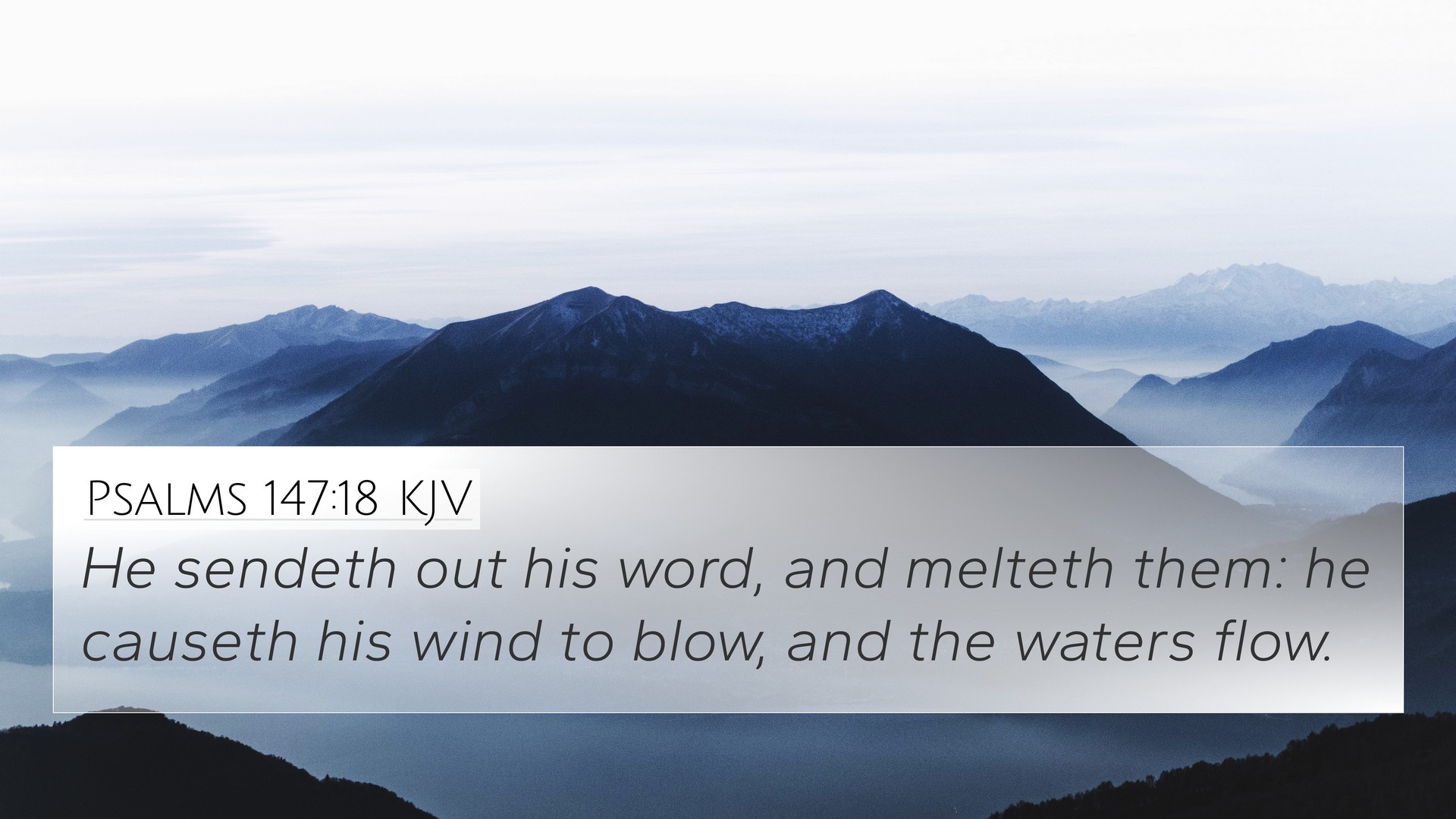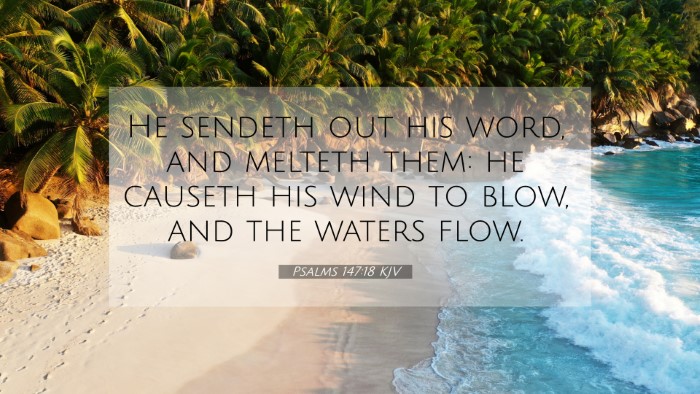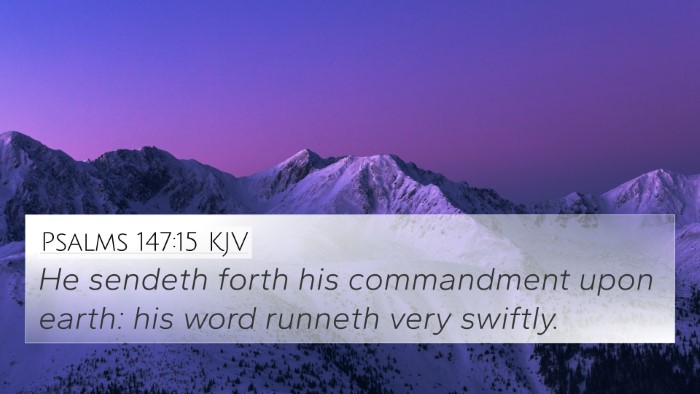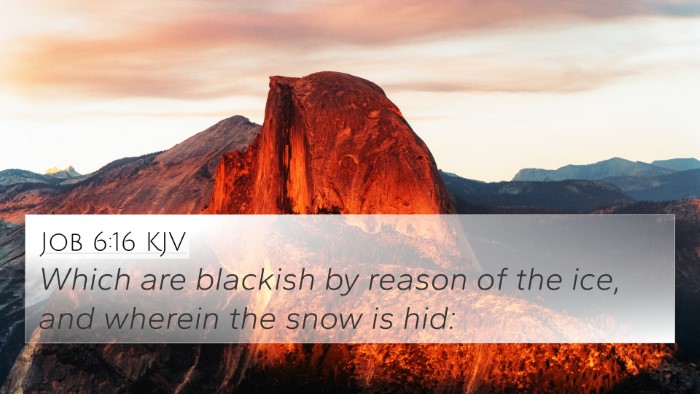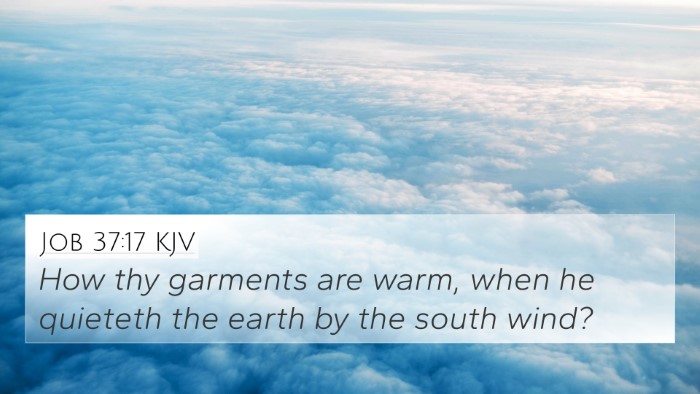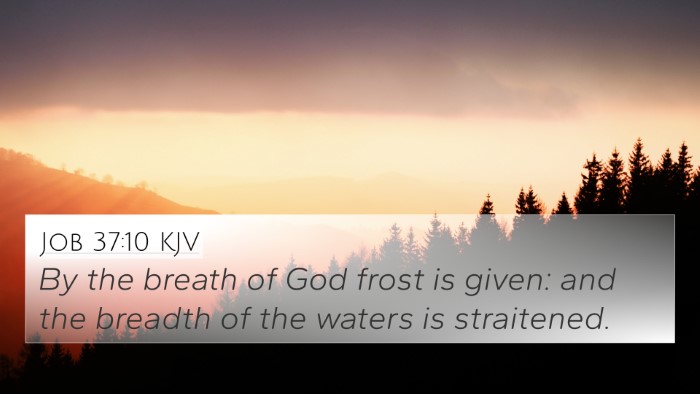Psalms 147:18 - Meaning and Interpretation
Bible Verse: Psalms 147:18 - "He sends out his word and melts them; he makes his wind blow and the waters flow."
Overview and Context
The book of Psalms is a collection of songs and prayers that reflect the spiritual journey of the Israelites. Psalms 147 is a hymn of praise to God for His greatness and care for His creation, particularly for Israel. The verse 18 encapsulates the divine power and sovereignty of God over nature.
Commentary Insights
Various public domain commentaries provide valuable perspectives on this verse:
-
Matthew Henry:
Henry emphasizes the majesty of God's word as a force that can change the natural world. He interprets the 'melting' of beings as a metaphor for God's power to soften hearts and influence creation, reflecting God's authority.
-
Albert Barnes:
Barnes highlights the imagery of God's control over elemental forces. The "wind" and "waters" signify both literal and metaphorical aspects of God's command over nature and life, showcasing His ability to manipulate and direct creation at will.
-
Adam Clarke:
Clarke points out that God’s word not only affects the physical world but also represents His promises and decrees. He connects the melting of ice and the flow of water to themes of renewal and rejuvenation, indicating God’s sustaining power.
Thematic Connections
The verse connects with several broader biblical themes such as God's sovereignty, His care for creation, and the transformative power of His word. Here are key themes found in this verse:
- God's Sovereignty: The verse depicts God as the supreme authority who can command the elements.
- Transformative Nature of God's Word: It implies that God's word brings change, both physically and spiritually.
- Connection to Creation: Highlighting God's ongoing relationship with the natural order creates a bridge to understanding His care for humanity.
Cross-References
This verse has several cross-references that enhance its meaning:
- Psalm 33:9: "For he spoke, and it came to be; he commanded, and it stood firm." - Illustrating God’s creative word.
- Isaiah 55:10-11: "As the rain and the snow come down from heaven... so is my word that goes out from my mouth." - The effectiveness of God's word.
- Job 37:10: "By the breath of God ice is given, and the broad waters are frozen fast." - God controlling the elements.
- Luke 8:25: "He rebuked the wind and the raging waves; they ceased, and there was a calm." - New Testament connection to Jesus’ authority over nature.
- Hebrews 1:3: "He is the radiance of the glory of God and the exact imprint of his nature, and he upholds the universe by the word of his power." - The power of Christ's word in sustaining the universe.
- Mark 4:39: "And he awoke and rebuked the wind and said to the sea, 'Peace! Be still!' And the wind ceased, and there was a great calm." - Again underlining the authority of God's word.
- Proverbs 25:14: "Like clouds and wind without rain is a man who boasts of a gift never given." - Context of God's provision and promises.
Connection to New Testament Teachings
This verse parallels themes found in the New Testament, particularly regarding Jesus' authority and the transformative nature of His spoken word. For instance, His commands over nature during storms demonstrate that the same God who controls the wind and waters in the Psalms is present in Christ.
Conclusion
Psalms 147:18 is a profound declaration of God's omnipotence and the impactful nature of His words. Through cross-referencing with other scriptures, one can see acute thematic connections that deepen our understanding of God's relationship with creation, affirming the continuity of biblical messages from the Old Testament to the New Testament.
Further Study
For a deeper exploration, consider using tools for Bible cross-referencing, such as a Bible concordance or a cross-reference Bible study guide. These resources can provide insights into how various scriptures connect and enhance the understanding of biblical themes.
